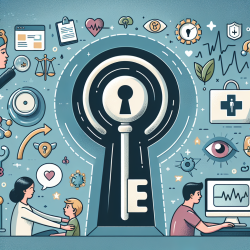The research paper by Fernando M. Reimers highlights the critical role universities play in developing effective climate change education strategies. These strategies are not only relevant for environmental education but can also provide valuable insights into improving online therapy practices. Here are some key takeaways from the research and how they can be applied:
1. Multidisciplinary Frameworks
Reimers emphasizes the importance of multidisciplinary frameworks that account for cultural, psychological, professional, institutional, and political dimensions. For online therapy practitioners, adopting a multidisciplinary approach can enhance the quality of therapy by integrating diverse perspectives and methodologies. This can lead to more comprehensive and effective treatment plans tailored to individual student needs.
2. Context-Specific Strategies
The research underscores the need for context-specific strategies that align learning outcomes with the impacts of climate change in specific contexts. Similarly, online therapy practitioners should develop context-specific strategies that consider the unique needs and circumstances of each student. This personalized approach can improve engagement and outcomes in therapy sessions.
3. Collaboration and Coherence
Effective climate change education requires collaboration and coherence among various stakeholders. Online therapy practitioners can benefit from collaborating with educators, parents, and other professionals to create a cohesive support system for students. This collaborative approach can ensure that therapy goals are aligned with educational objectives, leading to more holistic support for students.
4. Professional Development
The development of institutional capacity is crucial for implementing climate change education strategies. For online therapy practitioners, ongoing professional development is essential to stay updated with the latest research and best practices. Universities can play a significant role in providing training and resources to enhance the skills of online therapists.
5. Engaging Students in Problem-Based Learning
Reimers advocates for engaging students in problem-based, participatory, and contextually situated approaches. Online therapy can incorporate similar techniques by involving students in interactive and participatory activities that address their specific challenges. This approach can make therapy sessions more engaging and effective.
In conclusion, the insights from climate change education research can provide valuable guidance for online therapy practitioners. By adopting multidisciplinary frameworks, developing context-specific strategies, fostering collaboration, prioritizing professional development, and engaging students in problem-based learning, practitioners can enhance their skills and improve the quality of online therapy services.
To read the original research paper, please follow this link: The Role of Universities Building an Ecosystem of Climate Change Education.










